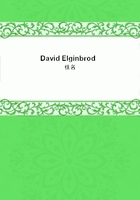
第28章
Knowledge bloweth up, but charity buildeth up.
LORD BACON'S rendering of 1 Cor. viii. I.
Things went on as usual for a few days, when Hugh began to encounter a source of suffering of a very material and unromantic kind, but which, nevertheless, had been able before now, namely, at the commencement of his tutorship, to cause him a very sufficient degree of distress. It was this; that he had no room in which he could pursue his studies in private, without having to endure a most undesirable degree of cold. In summer this was a matter of little moment, for the universe might then be his secret chamber; but in a Scotch spring or autumn, not to say winter, a bedroom without a fire-place, which, strange to say, was the condition of his, was not a study in which thought could operate to much satisfactory result.
Indeed, pain is a far less hurtful enemy to thinking than cold.
And to have to fight such suffering and its benumbing influences, as well as to follow out a train of reasoning, difficult at any time, and requiring close attention--is too much for any machine whose thinking wheels are driven by nervous gear. Sometimes--for he must make the attempt--he came down to his meals quite blue with cold, as his pupils remarked to their mother; but their observation never seemed to suggest to her mind the necessity of making some better provision for the poor tutor. And Hugh, after the way in which she had behaved to him, was far too proud to ask her a favour, even if he had had hopes of receiving his request. He knew, too, that, in the house, the laird, to interfere in the smallest degree, must imperil far more than he dared. The prospect, therefore, of the coming winter, in a country where there was scarcely any afternoon, and where the snow might lie feet deep for weeks, was not at all agreeable. He had, as I have said, begun to suffer already, for the mornings and evenings were cold enough now, although it was a bright, dry October. One evening Janet remarked that he had caught cold, for he was 'hostin' sair;' and this led Hugh to state the discomfort he was condemned to experience up at the ha' house.
"Weel," said David, after some silent deliberation, "that sattles't;we maun set aboot it immedantly."
Of course Hugh was quite at a loss to understand what he meant, and begged him to explain.
"Ye see," replied David, "we hae verra little hoose-room i' this bit cot; for, excep this kitchen, we hae but the ben whaur Janet and me sleeps; and sae last year I spak' to the laird to lat me hae muckle timmer as I wad need to big a kin' o' a lean-to to the house ahin', so 'at we micht hae a kin' o' a bit parlour like, or rather a roomie 'at ony o' us micht retire till for a bit, gin we wanted to be oor lanes. He had nae objections, honest man. But somehoo or ither Inever sat han' till't; but noo the wa's maun be up afore the wat weather sets in. Sae I'se be at it the morn, an' maybe ye'll len' me a han', Mr. Sutherlan', and tak' oot yer wages in house-room an' firin' efter it's dune."